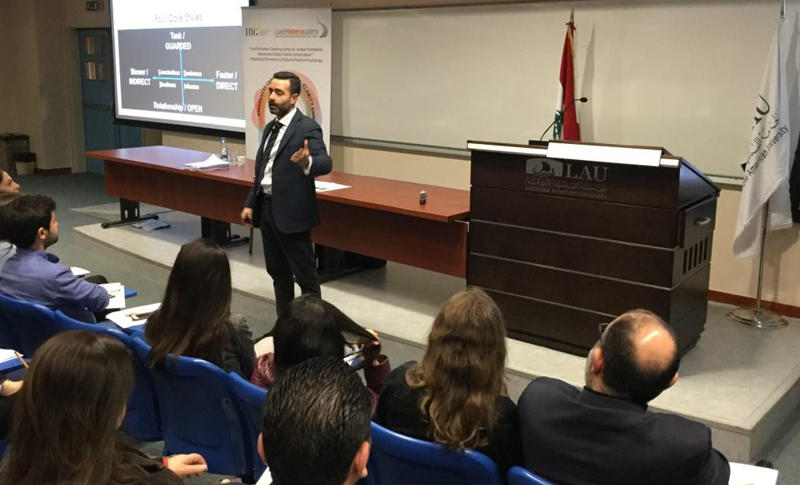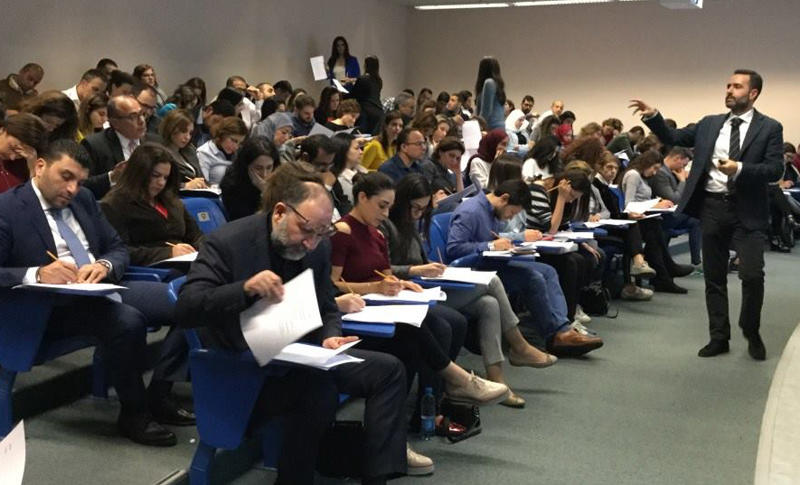The “Platinum Rule” for Success
Alumni lecture focuses on communication and adaptation as keys to progress in the workplace.
Emotional IQ is far more important than traditional IQ, said Corporate Advisor and Certified Leadership Coach Ihab Badawi. He was speaking to a large crowd gathered at the Adnan Kassar School of Business on Beirut campus as part of the Keep Learning lecture series organized and hosted by the Alumni Relations Office.
“High social intelligence has a big impact on our lives, and we’re not talking about extroverts and introverts,” said Badawi, who graduated from LAU with a BS in Business Administration in 2000. It’s about understanding and empathizing with others in order to communicate effectively.
“When you change the language to fit the person you’re talking to, it’s adaptation,” he told the crowd, mostly made up of other LAU alumni and young professionals. “The minute you make a decision to adapt to another person’s style, you are starting to respect that person.”
That’s how Badawi’s “platinum rule” came about. The rule, a spin on the golden rule, requires that we treat others the way they want to be treated. This means taking the time to understand what other people want.
One of the ways that help us adapt our behavior is understanding the four different types of personalities that Badawi has identified. Dominant people usually lean more toward forcing their decisions on others. Influencers are usually direct and fast, but open. Confirmers are followers; they listen but might change their minds. And the conscientious take the time to assess risks and base all decisions on facts and principles. Badawi said that no one personality is better than the other, but it is important to understand these profiles to improve communication and develop trust with others.
How can people adapt to each other and gain trust? Badawi said the secret ingredient is conversational intelligence, or C-IQ. He recommended becoming familiar with conversational styles and avoiding pushing one’s point of view on others, ignoring other perspectives, being a disengaged listener and insisting on being right.
All audience members were given an emotional IQ test, which they were instructed to fill out and then evaluate their results.
The presentation was followed by a lively Q&A session, with several attendees staying on with Badawi to continue the discussion in the reception area.
Audience member Sarah Khaled, who works as a teacher, said, “You have to know about yourself to deal with other people. If you don’t know about yourself, how can you know about others?”
“In Lebanon, the education system concentrates mostly on IQ and not on the emotional intelligence component,” said attendee Bassima Ghaddar, who works as a project mediator. She said she is glad she learned another perspective at the talk.
Other attendees said they were interested in learning more about what they considered useful concepts for their business and personal lives.
“Many people know emotional intelligence on the surface. But they need to take it further,” said Badawi at the end of the talk.

